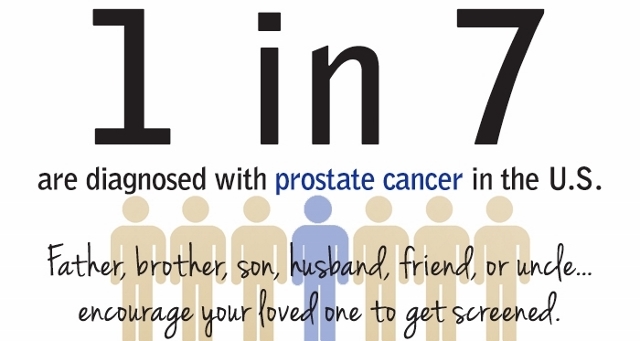QUESTIONS TO ASK YOURSELF ABOUT PROSTATE PROBLEMS
Did you know that about one out of seven men will be diagnosed with prostate cancer during his lifetime? Prostate cancer is the second leading cause of cancer death in American men, behind only lung cancer. The American Cancer Society’s estimates for prostate cancer in the U.S. for 2016 are: Over 180,890 new cases of prostate cancer will be diagnosed. Over 26,120 will die because they didn’t get an examination or didn’t act soon enough. Prostate cancer develops mainly in older men. About six cases in 10 are diagnosed in men aged 65 or older, and it is rare before age 40. The average age at the time of diagnosis is about 66.
That’s why Coffee Regional Medical Center and Dr. Al Mazur of CRH Urology are teaming up to conduct low cost prostate cancer screenings for a reduced lab fee of only $10. White males between the ages of 50 to 80 years (or younger with a family history of prostate cancer) and African-American males between the ages of 40 to 80 years are eligible for screening. The screening clinics will be held Thursday, September 22, from 4 to 7 p.m. and Saturday, September 24, from 8 to 11 a.m. at Coffee Regional Medical Center. No appointment is necessary, call 912-383-6943 for more information.
There are very few early warning signs of prostate cancer. Typically, this cancer is without symptoms until it has advanced beyond the prostate and is no longer curable. The best chance for cure is early detection, while the disease is still confined to the prostate. The earlier prostate cancer is discovered, the better the chances are that it can be treated effectively. Prostate cancer can be a serious disease, but most men diagnosed with prostate cancer do not die from it. In fact, more than 2.9 million men in the United States who have been diagnosed with prostate cancer at some point are still alive today.
Early warning signs of noncancerous prostate problems are changes in your voiding pattern. Ask yourself the following 10 questions. If you answer “yes” to any, make an appointment to see your physician.
1) Have you noticed a change in your urination pattern lasting for two weeks?
2) Is your urine flow weaker or interrupted?
3) Do you have difficulty urinating?
4) Do you need to urinate more frequently?
5) Does the need to urinate frequently wake you up at night?
6) Have you noticed any blood in your urine?
7) Do you have difficulty stopping the urine flow?
8) Do you feel a painful or slight burning sensation when you urinate?
9) Have your experienced lower back pain recently?
10) Do you have an achy feeling in your pelvic area or upper thighs?
– Submitted







